Strictly Personal
Deborah: Atiku Abubakar and why votes are thicker than blood by Festus Adedayo
Published
2 years agoon
Distressing pieces of bad news are everywhere. From the murder of Miss Deborah Samuel Yakubu by students of Shehu Shagari College of Education in Sokoto last Thursday, to the immediate distancing of Nigerian politicians from her killing, hope that a post-Muhammadu Buhari Nigeria will not be clone of its unjust and inequitable era seems to be fading. Between the Deborah murder, the political mockery on the political arena and the lack of regards for Nigerians by Nigerian rulers, two explainers respond to the distresses: They are the Sekere and the forest.
Sekere, the Yoruba musical instrument, is reputed never to be found wherever tears are being shed. Made of a gourd that is knitted round by beads and which its user twists, shakes or slaps to produce a medley of exciting sounds, Sekere and sorrow are strange bedfellows as this musical instrument can never be found in an assemblage of poets engaged in dirges. Proud of Sekere’s pedigree of being a springboard of joy and conviviality, Yoruba proudly thump their chests that Sekere does not cavort in an assembly of the downcast. Unlike the Sekere however, last week, and as it has been its wont, Nigeria again showed that Sekere’s antithesis excites it. From the political, the social, to the economic, the Sekere became a rare object in sight in Nigeria.
But the ululating sound of the Gbedu was everywhere. Before its virginity was violently taken off it by emerging trends of modernity, the Gbedu was a sacred drum that you found in groves of Ogboni secret cult adherents. Also known as the Ogido, the Gbedu belongs to one of the four major families of Yoruba drums. To set it aside as unique and underscore its sacredness, the Gbedu in ancient time was shawled by carvings of animals, birds and the phallus, which depicted its masculinity. During traditional sacrifice ceremonies, the Gbedu was brought out with blood sprinkled on its outward coverings of carvings and an assortment of sacrificial offerings is festooned round it which ranged from feathers of hens, sprinkles of palm wine and egg yolks.
As the week that just ended was meandering into its twilight, Northern Nigerian drummers went inside their bloodied groove to bring out and beat the Gbedu drum. The drum’s howling beat had hardly subsided when the female student, Deborah, was stoned to death and burnt like a ram in Sokoto. Her sin for deserving the fate of a ram in the abattoir was that she allegedly blasphemed the name of Muhammed, the Islamic prophet who died thousands of years ago.
Thereafter, the country was set on edge. Ordinarily, in a country where politicians strive to outdo one another in hypocritical scramble for the hearts of the people in the public square, Deborah’s murder was an opportunity for the political elite to wax lyrical in righteous indignation and casuistry. Press releases that are far distant from the dark groves of the politicians’ hearts are issued at an auspicious moment like this, written in emotion-laden language that points at their belief and desire for a better country.
As the news of Deborah’s murder filtered in on the social media last Thursday, it occasioned a scramble among, especially, presidential aspirants who are sprinting to Nigeria’s Aso Rock gate. You wouldn’t find any difference between their scramble and the one between 1881 and 1914, nicknamed the Scramble for and Partition of Africa, which resulted in its conquest. As Western European powers invaded Africa for the purpose of its annexation, these politicians also scrambled to share a chunk of the people’s hearts in the art of shedding crocodile tears over this bestial killing.
Serial presidential contender, Atiku Abubakar, would seem to have breasted the tape before anyone else. Couched in a distraught voice that spoke like a father and a nationalist genuinely touched and saddened by the barbarism, Atiku’s statement got to Twitter at exactly 12.20am on Friday morning and empathized admirably thus: “There cannot be a justification for such gruesome murder. Deborah Yakubu was murdered and all those behind her death must be brought to justice. My condolences to her family and friends”.
In the language of Nigerian power, however, the above was not apropos. For Nigerian politicians, justice has no corresponding alphabet to politicking. So, when, a few minutes after the tweet, vultures that suck the flesh with their talons stained with blood, hopped on Twitter’s comment section threatening that, by that tweet, Atiku had lost their votes, with implicit threats that whenever he came to Sokoto, they would make him feel the pang of his infelicitous comment against Islam, it occurred to Atiku that votes were thicker than blood. One of them, going by the name, Otunba of Sokoto, told Atiku: “You just lost a million votes in Sokoto”.
That threat seemed to jolt the Turakin Adamawa who sprinted to delete the empathetic message.
While outrage gripped the land that had been painted with crimson, politicians, especially those seeking electors’ votes, weighed the ounces of their statements in empathy to Deborah. It took Vice President Yemi Osinbajo more than 24 hours before his comment came. As I write this, none has come from Bola Ahmed Tinubu. Even the president’s was steeped in the usual puritanical escapism associated with lame duck government statements. Even if it did, nobody would believe him. Buhari has run a government in the last seven years that is lean on justice against malefactors but lusciously rotund in cavalier grandstanding. “No person has the right to take the law into his or her own hands in this country. Violence has and never will solve any problem,” Buhari said.
Pray, why would a president, held to be an emblem of justice and equity, now be seeking to upstage the ecumenical cadences and spiritual narratives of the Imam or the pulpit sermon of the pastor? The animals of Sokoto go luscious because Nigeria has been a consequence-less country. It is worse under a man like Buhari who sees his first responsibility in Aso Rock as a defender of the Islamic faith. In virtually all continents of the world where human beings inhabit, you cannot rule out the tendency of some of our brothers extending their hands in a handshake to our ape brothers. This they do in an attempt to link up with their pre-historical mammalian ancestry. Wherever this occurs, flaunting the scorching fangs of the law, governments of such countries always come out to violently reset the brains of these apes. But we know that this won’t happen under this president. It has never happened. Buhari himself, as a presidential aspirant, had espoused this religious fundamentalism and crude lawlessness when he made reference to the blood of baboon and dogs.
Many people have been talking tongue-in-cheek since Deborah was murdered. The truth is that, Northern Nigeria is home to one of the most horrendous religious fundamentalism that the hapless people of Nigeria are forced to stomach. The killing of Deborah and reactions to it have proved very graphically that yoking the north and south together was one of the most fundamental errors of Nigeria’s nation-statehood. While a negligible percentage of northern purists shudder at this barbarism, millions others believe that religion and its tenets should take precedence over human life. This is the root of the fundamentalism that killed Deborah. It is sickening that in this 21st century, a people could be this dogmatically wedged to and rigidly affixed to an interpretation of scriptures, at the detriment of humanity. There is no difference between the religious fundamentalism and extremism of the Sokoto animal butchers who killed Deborah and the ones of ISIS and Al-Qaeda. They are both sired by and linked to negative outcomes such as prejudice, hostility or even armed conflict that religious fundamentalism brings.
In southern Nigeria, the character of religion is more discerned and indeed discernible. What is my business if you blaspheme Jesus Christ? Am I His armour bearer? Or that you tore pages of the Bible and defecate on it? That is your business for which you will have your day with Him in judgment – if indeed there is one. Why should anyone seek martyrdom for foreign religions whose hereafter theologies are basically guesswork?
Christianah Oluwasesin, Grace Ushang, Gideon Akaluka and others after them are products of the useless martyrdom that some adherents of Islamic religion crave. Their claim for those horrendous murders was that the holy writ says they would be beatified if they kill their fellow beings. Oluwasesin got lynched in Gombe in 2007 by secondary school students. They had accused her of rubbishing the Qur’an. What happened was that, while invigilating an exam, she was confronted by cheating students. Irked, Oluwasesin snatched the paper from them. To her chagrin, she discovered that the leaflet was a Qur’an. She met her waterloo. Ushang, in 2009 in Maiduguri, got raped and murdered. Her sin? She had the effrontery of wearing the trousers of the NYSC. I remember that in Yelwa-Yauri in 1992, my female colleague corps members were almost lynched inside the Yauri market for wearing similar trousers. Gideon Akaluka was the precursor of the earlier two. He was beheaded in Kano in 1995. His sin too was disrespecting the Qur’an.
Bible and Quran, written thousands of years ago, must be made to adhere to the quests of today’s world. You cannot ask for an unthinkable adherence to a call to kill “infidels” written in an almost pre-historic era at a modern time like this. Whether in Christianity, Islam or any other faith, the moment you allow your brain to go on sabbatical while you read the writs of the faiths, you have become indistinguishable from an animal. The Bible or Quran cannot be bigger than humanity. Man was not made for religion but religion was made for man. Nothing weighs as hugely as humanity and its essence.
Aside the Deborah murder, there are other parallels to the strange weirdness that has gripped Nigeria in recent time. And the forest seems the most fitting description of where we have found ourselves. In Africa, the forest is not just a mosaic of long stretches of scary landscape, huge trees that seem to offer handshakes to one another; it is not merely the habitat where scary chirps of crickets and birds and animals are heard, neither is it just the abode of flaura and fauna. The forest is the place where the unexplained and the inexplicable live. If you doubt this, read the classics of D.O. Fagunwa. It is why hunters who make the forest their dwelling places, who suddenly get lost inside its strange labyrinth, are highly respected and venerated as superhuman. Hunters are reputed to tango, in a life and death battle, with strange and deadly animals, deploying their physical brawns and supernatural powers inherited from their forebears.
Our children have been at home for months now, no thanks to the ASUU-government imbroglio and no one seems to care. In the states of the north-central, north-east and north-west, there is a greater harvest of human bodies than they do annual crops. Hopelessness has seized the land like a pestilence. Yet, politicians are stone deaf and morbid dumb to this reign of crimson. All they do is muzzling and stampeding for political offices. We now have a canvass of serious contenders for positions and appointment-inspired declarations of intents. Billions of naira of government’s money and already stashed away cash are being floated in space to attain life-long ambitions of politicians while hunger persistently wracks the bellies of the people.
In situating where we have found ourselves, I will go to the forest still to secure an explainer. Especially, for the cat-and-mouse game between the political and governmental elites and the people. When hunters go to the forest to hunt game, they use this peculiar, centuries-old expedition methodology that is aptly captured by the “we” and “them” bifurcation. The hunting crew encircles a forest which is believed to be the habitation of games – mongoose, impala, antelope and so on. Those with guns and cutlasses, with their weapons on the ready, are ranged at the front while the rest of the crew is saddled with the task of beating the bush with huge woods from the back.
With this, experience tells them that the animals will scramble out of their holes. When the animals thus try to escape, the armed hunting crew shoots them to death. At the close of the day when the whole crew gets home with their spoils and the animals are shared, the armed hunters, who do next to nothing but shoot, get what the Yoruba call the Itafa which consists of the meaty thighs and head. The yokel who beat the bush get the almost meat-less portions of the animal. Espousing the sense in not being a yokel, late Apala musician, Ayinla Omowura, sang that his opponents merely beat the bush in a hunt for games and he was the hunter with the gun who would coast home with the chunkiest meat – “E f’awon were sile…” he upbraided them. Resigning to fate in an unholy alliance as this, Sikiru Ayinde Barrister, another musician of that age, sang that when given the bony back of the animal in this equation, it signified that he would see his enemies’ end, their back.
You may like
-


Air Peace, capitalism and national interest, By Dakuku Peterside
-


This is chaos, not governance, and we must stop it, By Tee Ngugi
-


Off we go again with public shows, humbug and clowning, By Jenerali Uliwengu
-


How patriarchy underpins gender violence today, By Tee Ngugi
-


Help! There’s a dangerous, secret plot to save the EAC from imminent death, By Charles Onyango-Obbo
-
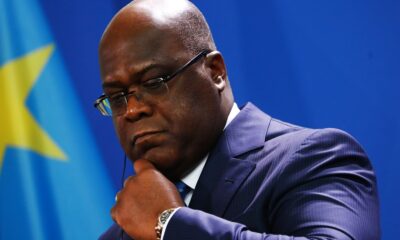

How South Africa, US elections could shape Tshisekedi’s bread in Kinshasa, By Charles Onyango-Obbo
Strictly Personal
Air Peace, capitalism and national interest, By Dakuku Peterside
Published
1 week agoon
April 16, 2024
Nigerian corporate influence and that of the West continue to collide. The rationale is straightforward: whereas corporate activity in Europe and America is part of their larger local and foreign policy engagement, privately owned enterprises in Nigeria or commercial interests are not part of Nigeria’s foreign policy ecosystem, neither is there a strong culture of government support for privately owned enterprises’ expansion locally and internationally.
The relationship between Nigerian businesses and foreign policy is important to the national interest. When backing domestic Nigerian companies to compete on a worldwide scale, the government should see it as a lever to drive foreign policy, and national strategic interest, promote trade, enhance national security considerations, and minimize distortion in the domestic market as the foreign airlines were doing, boost GDP, create employment opportunities, and optimize corporate returns for the firms.
Admitted nations do not always interfere directly in their companies’ business and commercial dealings, and there are always exceptions. I can cite two areas of exception: military sales by companies because of their strategic implications and are, therefore, part of foreign and diplomatic policy and processes. The second is where the products or routes of a company have implications for foreign policy. Air Peace falls into the second category in the Lagos – London route.
Two events demonstrate an emerging trend that, if not checked, will disincentivize Nigerian firms from competing in the global marketplace. There are other notable examples, but I am using these two examples because they are very recent and ongoing, and they are typological representations of the need for Nigerian government backing and support for local companies that are playing in a very competitive international market dominated by big foreign companies whose governments are using all forms of foreign policies and diplomacy to support and sustain.
The first is Air Peace. It is the only Nigerian-owned aviation company playing globally and checkmating the dominance of foreign airlines. The most recent advance is the commencement of flights on the Lagos – London route. In Nigeria, foreign airlines are well-established and accustomed to a lack of rivalry, yet a free-market economy depends on the existence of competition. Nigeria has significantly larger airline profits per passenger than other comparable African nations. Insufficient competition has resulted in high ticket costs and poor service quality. It is precisely this jinx that Air Peace is attempting to break.
On March 30, 2024, Air Peace reciprocated the lopsided Bilateral Air Service Agreement, BASA, between Nigeria and the United Kingdom when the local airline began direct flight operations from Lagos to Gatwick Airport in London. This elicited several reactions from foreign airlines backed by their various sovereigns because of their strategic interest. A critical response is the commencement of a price war. Before the Air Peace entry, the price of international flight tickets on the Lagos-London route had soared to as much as N3.5 million for the economy ticket. However, after Air Peace introduced a return economy class ticket priced at N1.2 million, foreign carriers like British Airways, Virgin Atlantic, and Qatar Airways reduced their fares significantly to remain competitive.
In a price war, there is little the government can do. In an open-market competitive situation such as this, our government must not act in a manner that suggests it is antagonistic to foreign players and competitors. There must be an appearance of a level playing field. However, government owes Air Peace protection against foreign competitors backed by their home governments. This is in the overall interest of the Nigerian consumer of goods and services. Competition history in the airspace works where the Consumer Protection Authority in the host country is active. This is almost absent in Nigeria and it is a reason why foreign airlines have been arbitrary in pricing their tickets. Nigerian consumers are often at the mercy of these foreign firms who lack any vista of patriotism and are more inclined to protect the national interest of their governments and countries.
It would not be too much to expect Nigerian companies playing globally to benefit from the protection of the Nigerian government to limit influence peddling by foreign-owned companies. The success of Air Peace should enable a more competitive and sustainable market, allowing domestic players to grow their network and propel Nigeria to the forefront of international aviation.
The second is Proforce, a Nigerian-owned military hardware manufacturing firm active in Rwanda, Chad, Mali, Ghana, Niger, Burkina Faso, and South Sudan. Despite the growing capacity of Proforce in military hardware manufacturing, Nigeria entered two lopsided arrangements with two UAE firms to supply military equipment worth billions of dollars , respectively. Both deals are backed by the UAE government but executed by UAE firms.
These deals on a more extensive web are not unconnected with UAE’s national strategic interest. In pursuit of its strategic national interest, India is pushing Indian firms to supply military equipment to Nigeria. The Nigerian defence equipment market has seen weaker indigenous competitors driven out due to the combination of local manufacturers’ lack of competitive capacity and government patronage of Asian, European, and US firms in the defence equipment manufacturing sector. This is a misnomer and needs to be corrected.
Not only should our government be the primary customer of this firm if its products meet international standards, but it should also support and protect it from the harsh competitive realities of a challenging but strategic market directly linked to our national military procurement ecosystem. The ability to produce military hardware locally is significant to our defence strategy.
This firm and similar companies playing in this strategic defence area must be considered strategic and have a considerable place in Nigeria’s foreign policy calculations. Protecting Nigeria’s interests is the primary reason for our engagement in global diplomacy. The government must deliberately balance national interest with capacity and competence in military hardware purchases. It will not be too much to ask these foreign firms to partner with local companies so we can embed the technology transfer advantages.
Our government must create an environment that enables our local companies to compete globally and ply their trades in various countries. It should be part of the government’s overall economic, strategic growth agenda to identify areas or sectors in which Nigerian companies have a competitive advantage, especially in the sub-region and across Africa and support the companies in these sectors to advance and grow to dominate in the African region with a view to competing globally. Government support in the form of incentives such as competitive grants ,tax credit for consumers ,low-interest capital, patronage, G2G business, operational support, and diplomatic lobbying, amongst others, will alter the competitive landscape. Governments and key government agencies in the west retain the services of lobbying firms in pursuit of its strategic interest.
Nigerian firms’ competitiveness on a global scale can only be enhanced by the support of the Nigerian government. Foreign policy interests should be a key driver of Nigerian trade agreements. How does the Nigerian government support private companies to grow and compete globally? Is it intentionally mapping out growth areas and creating opportunities for Nigerian firms to maximize their potential? Is the government at the domestic level removing bottlenecks and impediments to private company growth, allowing a level playing field for these companies to compete with international companies?
Why is the government patronising foreign firms against local firms if their products are of similar value? Why are Nigerian consumers left to the hands of international companies in some sectors without the government actively supporting the growth of local firms to compete in those sectors? These questions merit honest answers. Nigerian national interest must be the driving factor for our foreign policies, which must cover the private sector, just as is the case with most developed countries. The new global capitalism is not a product of accident or chance; the government has choreographed and shaped it by using foreign policies to support and protect local firms competing globally. Nigeria must learn to do the same to build a strong economy with more jobs.
Strictly Personal
This is chaos, not governance, and we must stop it, By Tee Ngugi
Published
2 weeks agoon
April 10, 2024
The following are stories that have dominated mainstream media in recent times. Fake fertiliser and attempts by powerful politicians to kill the story. A nation of bribes, government ministries and corporations where the vice is so routine that it has the semblance of policy. Irregular spending of billions in Nairobi County.
Billions are spent in all countries on domestic and foreign travel. Grabbing of land belonging to state corporations, was a scam reminiscent of the Kanu era when even public toilets would be grabbed. Crisis in the health and education sectors.
Tribalism in hiring for state jobs. Return of construction in riparian lands and natural waterways. Relocation of major businesses because of high cost of power and heavy taxation. A tax regime that is so punitive, it squeezes life out of small businesses. Etc, ad nauseam.
To be fair, these stories of thievery, mismanagement, negligence, incompetence and greed have been present in all administrations since independence.
However, instead of the cynically-named “mama mboga” government reversing this gradual slide towards state failure, it is fuelling it.
Alternately, it’s campaigning for 2027 or gallivanting all over the world, evoking the legend of Emperor Nero playing the violin as Rome burned.
A government is run based on strict adherence to policies and laws. It appoints the most competent personnel, irrespective of tribe, to run efficient departments which have clear-cut goals.
It aligns education to its national vision. Its strategies to achieve food security should be driven by the best brains and guided by innovative policies. It enacts policies that attract investment and incentivize building of businesses. It treats any kind of thievery or negligence as sabotage.
Government is not a political party. Government officials should have nothing to do with political party matters. They should be so engaged in their government duties that they literally would not have time for party issues. Government jobs should not be used to reward girlfriends and cronies.
Government is exhausting work undertaken because of a passion to transform lives, not for the trappings of power. Government is not endless campaigning to win the next election. To his credit, Mwai Kibaki left party matters alone until he had to run for re-election.
We have corrupted the meaning of government. We have parliamentarians beholden to their tribes, not to ideas.
We have incompetent and corrupt judges. We have a civil service where you bribe to be served. Police take bribes to allow death traps on our roads. We have urban planners who plan nothing except how to line their pockets. We have regulatory agencies that regulate nothing, including the intake of their fat stomachs.
We have advisers who advise on which tenders should go to whom. There is no central organising ethos at the heart of government. There is no sense of national purpose. We have flurries of national activities, policies, legislation, appointments which don’t lead to meaningful growth. We just run on the same spot.
Tee Ngugi is a Nairobi-based political commentator
EDITOR’S PICK


Nigeria govt cancels 924 dormant mining licences
Nigeria’s minister of mines said on Wednesday that 924 expired mining licences had been cancelled immediately. The country now wants...


Nigeria’s NGX Group enters into strategic investment partnership with Ethiopian Securities Exchange
Leading Nigerian integrated market infrastructure group in Africa, the Nigerian Exchange Group (NGX), has announced strategic investment in the Ethiopian...


Namibia govt condemns tourists posing naked on Big Daddy Dune
The Namibian authorities have frowned at tourists who posed naked at the Big Daddy Dune, the country’s top tourist attraction...
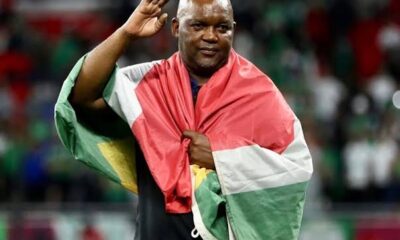

Domestic worker sues Pitso Mosimane, wife following debilitating injuries
Former Mamelodi Sundowns of South Africa and Al Ahli of Egypt coach, Pitso Mosimane, and his wife, Moira Tlhagale, have...
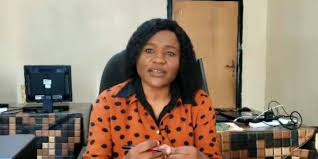

Media polarisation blamed for biased coverage, civil society leader calls for mindset shift
Chama Mwansa, Executive Director of the Chandarika Women and Youths Foundation, has attributed media biases to the similarities in coverage...


Nigeria: 118 prison inmates escape after rainstorm destroys facility
At least 118 inmates of the Medium Security Custodial Centre in Suleja, Niger State, in northern Nigeria, have reportedly escaped...


Tanzania’s auto-tech startup Spana is simplifying car maintenance— CEO
Tanzania’s auto-tech startup, Spana, has developed a mobile application for a bouquet of automobile services, enabling individual car owners and...


Nollywood thrown into mourning as another veteran actor Zulu Adigwe passes on
The Nigerian movie industry, popularly known as Nollywood, has once again been thrown into mourning with the death of veteran...


Zambian FA boss, Gen.Sec arrested over alleged laundering of K341,902
President of the Football Association of Zambia (FAZ), Andrew Kamanga, has been arrested along with the Secretary-General and two other...
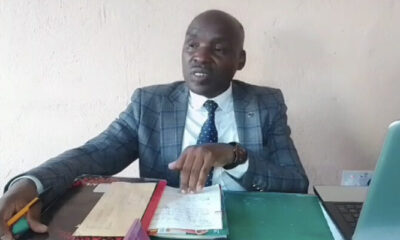

Luapula businessman, Munsanje, reflects on media freedoms and freedom of expression
As stakeholder engagement intensifies regarding the ongoing project to amplify voices on media freedom, freedom of expression, and digital rights,...
Trending
-
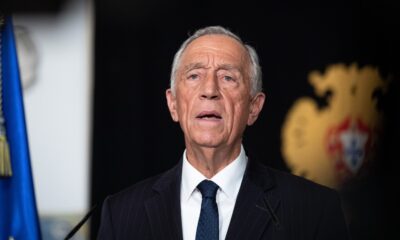
 Musings From Abroad2 days ago
Musings From Abroad2 days agoPresident de Sousa insists Portugal must ‘pay costs’ of slavery, colonial crimes
-

 Tech2 days ago
Tech2 days agoTanzania’s auto-tech startup Spana is simplifying car maintenance— CEO
-

 Culture2 days ago
Culture2 days agoNollywood thrown into mourning as another veteran actor Zulu Adigwe passes on
-
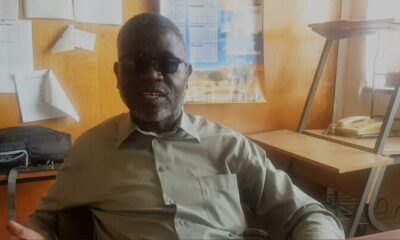
 Politics2 days ago
Politics2 days agoDigital Rights: Policy enthusiast, Jere, advocates self-regulation as alternative to govt regulations


